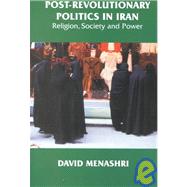Post-Revolutionary Politics in Iran: Religion, Society and Power
, by Menashri,David- ISBN: 9780714650746 | 0714650749
- Cover: Hardcover
- Copyright: 1/20/2001
The Islamic revolution was a major turning point in the modern history of Iran and one of the main developments in the contemporary Middle East. Carried by a wave of popular support, the revolution represented a new political system and leadership, with a new ideology and a vision of the ideal society. It embodied a promise - and raised expectations - of a brighter future for the country and the people. Once in power, however, the revolutionary leaders were often obliged to compromise revolutionary ideology in pragmatic response to the exigencies of their situation. Yet, opinions as to the actual policy which should be implemented and to the particular fields and pace of the change have differed, often drastically, among those representing the various political trends - radicals or extremists, pragmatists or reformists, conservatives of hard-liners, as they are often depicted. Retreat from dogma notwithstanding, the government has not yet managed to resolve Iran's pressing problems. Khatami's election(1997) was, in a way, the result of the growing discontent and signalled intensification of the existing domestic rifts. The Iranian ship of state continues to drift from course to course in search of a proper equilibrium: between dedication to its revolutionary convictions and the importunate demands of governance, between religion and state, and between Islam and the West. The first part of the book examines domestic developments and their influence on Iran's policy and posture. The second explores Iran's regional ambitions and politics. In studying matters thus, this book also attempts to decipher the complexities that characterize the relationship between Iran's domestic dynamics and its foreign policies.







